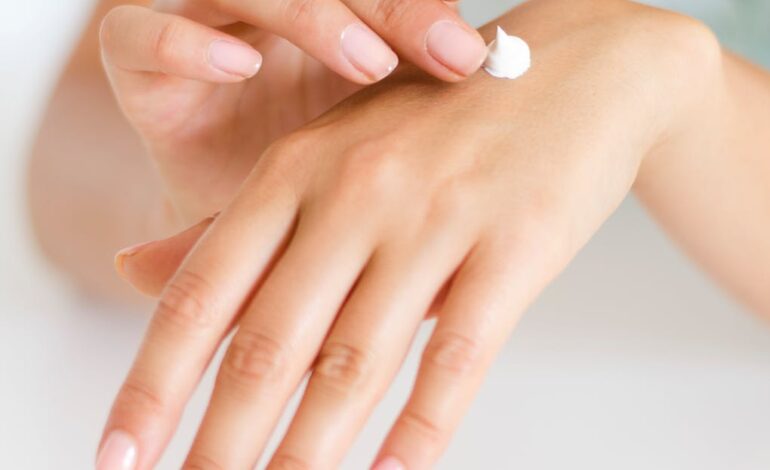Laser hair removal is a procedure that uses a special light to get rid of unwanted hair. The light turns into heat, damaging the hair roots and slowing down or stopping future hair growth.
It is important to note that while laser hair removal effectively delays hair growth for long periods, it usually does not result in permanent hair removal. Multiple treatments are typically needed for initial hair removal, and maintenance treatments might be necessary as well. The procedure is most effective for people with light skin and dark hair, but it can be used on all skin types.
Common treatment locations include the legs, armpits, upper lip, chin, and the bikini line, but unwanted hair in nearly any area, except the eyelid or surrounding area, can be treated.
It is essential to consult a doctor who is board-certified in a specialty such as dermatology and to follow specific instructions to prepare for the treatment, which may include avoiding sun exposure and other hair removal methods.
Shaving is acceptable before the treatment, but waxing or plucking should be avoided. The number of sessions needed varies, but typically 4-10 sessions spaced 4-6 weeks apart are required.
The procedure is generally safe, but there are some risks involved, such as skin irritation and changes in skin color. It is important to discuss the risks, benefits, and expectations with a doctor before undergoing laser hair removal.
the benefits and risks of laser hair removal
Laser hair removal has many advantages. It gives you lasting results, precisely targets specific hair, and reduces problems like ingrown hairs, bumps, and itching. It works well on different body areas, is not invasive, and causes minimal discomfort.
However, there are some risks. Common side effects include temporary skin irritation, redness, and swelling. Sometimes, it can lead to temporary or permanent changes in skin color.
Rarely, there may be blistering, crusting, scarring, or changes in skin texture. While it delays hair growth for a long time, laser hair removal usually doesn’t permanently remove hair.
Before getting laser hair removal, it’s important to talk to a board-certified doctor, especially one with expertise in areas like dermatology. Discussing the risks, benefits, and expectations with a qualified professional is essential.
factors that can affect the effectiveness of laser hair removal
The effectiveness of Laser hair removal determined by different factors:
1. **Skin Tone and Hair Color**: Laser hair removal works best for people with light skin and dark hair. The greater the contrast between the two, the more effective the treatment.
2. **Hormonal Imbalances**: Conditions like Polycystic Ovarian Syndrome (PCOS) or high hormone levels can affect how well laser hair removal works. Hormonal imbalances caused by pregnancy or menopause can lead to increased hair growth, making it harder for the laser to target all the hair.
3. **Hair Growth Cycles**: Laser hair removal is most effective on actively growing hairs. Since not all hairs grow simultaneously, multiple sessions are needed to target them effectively.
4. **Sun Exposure**: Exposure to the sun can reduce the effectiveness of laser hair removal. It’s advisable to avoid sun exposure for six weeks before and after treatment to ensure optimal results and minimize complications.
5. **Hair Density and Thickness**: The density and thickness of the hair also play a role. The treatment is most effective on dark, coarse hairs.
Before deciding on laser hair removal, it’s crucial to consult with a qualified professional. They can help determine if it’s the right option for you and discuss how these factors might impact the effectiveness of the treatment.
best practices for aftercare after laser hair removal
Taking care of your skin after laser hair removal is essential for the best results and to minimize potential issues. Here are some helpful aftercare practices:
1. **Cool It Down**: Use a cool compress or a cloth-wrapped ice pack on the treated area to ease pain and reduce swelling. You can also use a cool or lukewarm washcloth with cool water frequently.
2. **Sun Protection is Key**: Stay away from direct sun exposure to the treated area for one month before and after the procedure. After this period, use a high SPF sunscreen and reapply as needed.
3. **Hands Off**: Avoid waxing, plucking, or using epilators on the treated area, as this can interfere with the treatment process and encourage hair regrowth.
4. **Hold off on Products**: Skip using beauty products like makeup, body wash, and deodorant on the treated area for the first 24 hours. After that, you can reintroduce these products.
5. **Gentle Exfoliation**: Wait until redness subsides (usually one to two weeks) before gently exfoliating the treated area. Use a washcloth, mild soap, or scrub, and gently wipe over the area in circular motions several times a week.
6. **Follow Prescriptions**: If your dermatologist prescribed a steroid cream or other medications, use them as instructed and for the recommended duration.
7. **Opt for Loose Clothing**: Wear loose-fitting clothes on the day of treatment to minimize friction and reduce the risk of skin irritation.
8. **Keep it Lukewarm**: Use lukewarm water for the first 48 hours when showering and washing your face to prevent skin irritation.
9. **Patience is Key**: Allow at least four weeks between treatments to ensure the best results.
By following these aftercare tips, you can maintain the health of your skin, reduce discomfort, and enhance the effectiveness of your laser hair removal treatment.
how long should i wait before applying makeup after laser hair removal?
After undergoing laser hair removal, it’s generally advised to wait at least 24-48 hours before applying makeup.
This allows the skin to heal and helps prevent irritation. Different sources may have varying recommendations, with some suggesting avoiding makeup for up to 48 hours after treatment, while others may permit immediate use after the first session but advise waiting a few days before applying more. It’s crucial to follow the specific guidelines provided by your treatment provider.
If you experience any irritation or redness, it’s best to skip makeup and moisturizer until the irritation has subsided.
Additionally, it’s advisable to steer clear of makeup containing oil-based ingredients like mineral oil, petroleum jelly, and lanolin. Opt for gentle, fragrance-free products and avoid harsh scrubs or exfoliators during the healing process. These precautions contribute to the overall well-being of your skin after laser hair removal.


